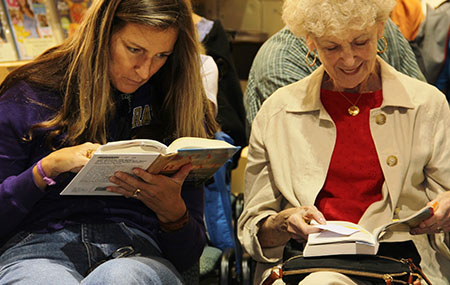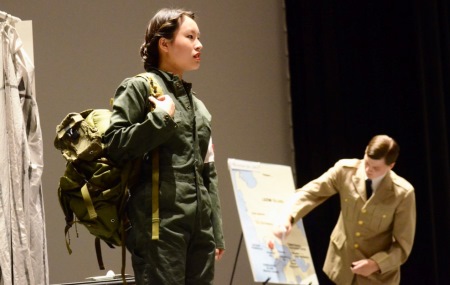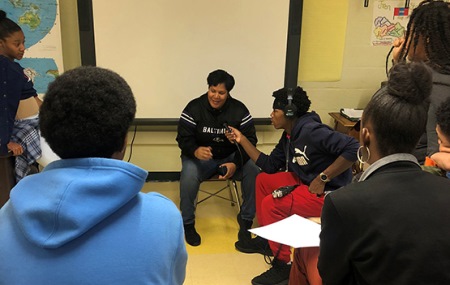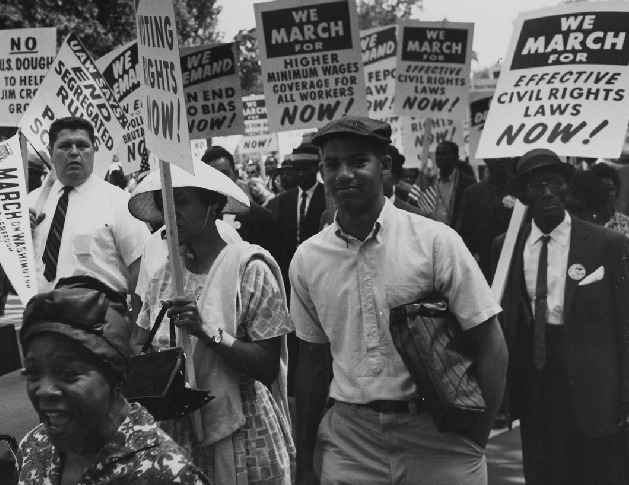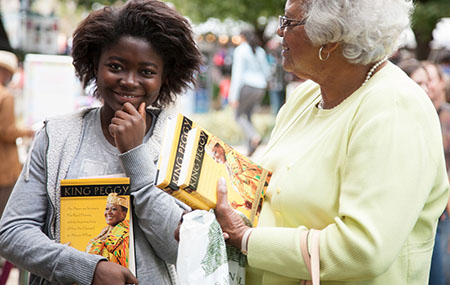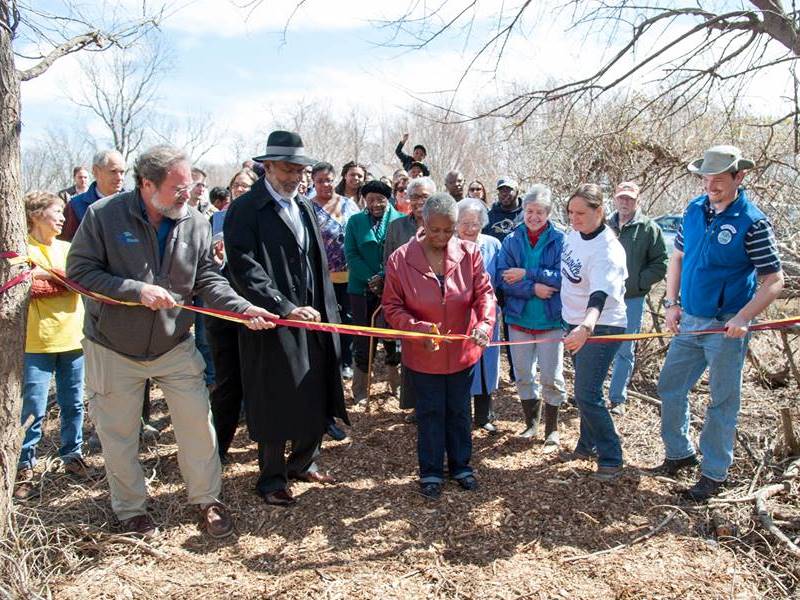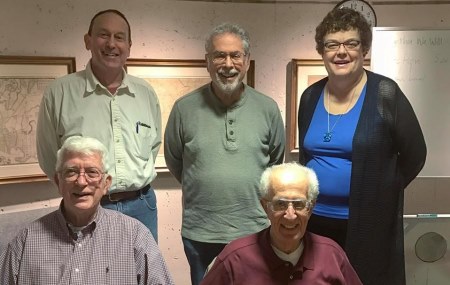With our network of partners, MCFB develops and supports literary programs that promote and celebrate books, reading, libraries, Maryland writers, and the state’s literary heritage.
In a friendly competition, students in grades 6-12 immerse themselves in a facet of history that interests them by researching it in-depth and presenting it in a creative way.
Maryland Humanities brings oral history training to schools and communities with Maryland Voices, an oral history project led by Maryland Humanities staff and trained oral historians.
This unique cultural collaboration between the Smithsonian Institution and Maryland Humanities brings high-quality traveling exhibitions to small communities across the state, who make locally focused companion exhibits.
Encouraging a love of reading and a deeper sense of community, One Maryland One Book is like a statewide book club. Every Marylander is invited to participate through one of the hundreds of events happening around the state.
Working with local communities, we provide opportunities for partners located across Maryland to collaborate, share resources, build capacity and demonstrate the value of humanities work in their communities.
Veterans Book Groups aim to bring veterans of all eras together to talk about military experiences and returning to civilian life while providing an informal, supportive environment for discussion, spurred by the shared reading of literature.


